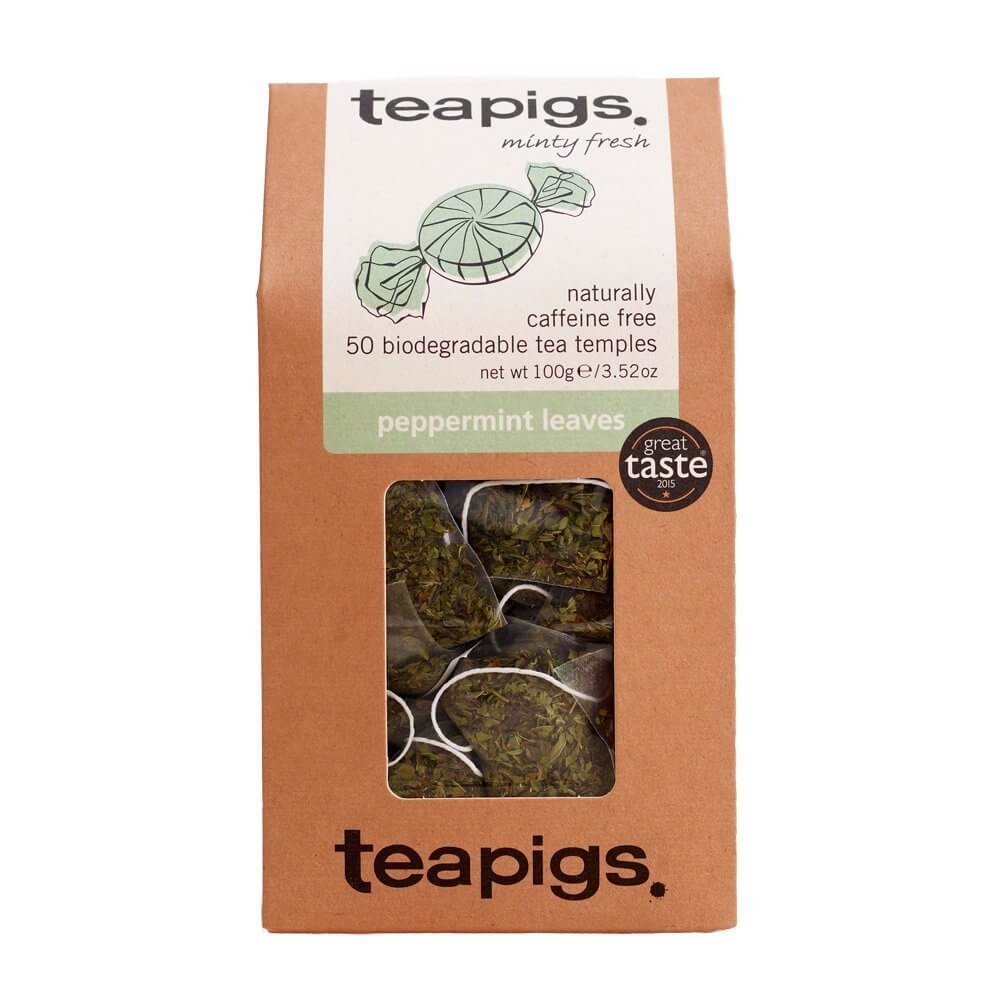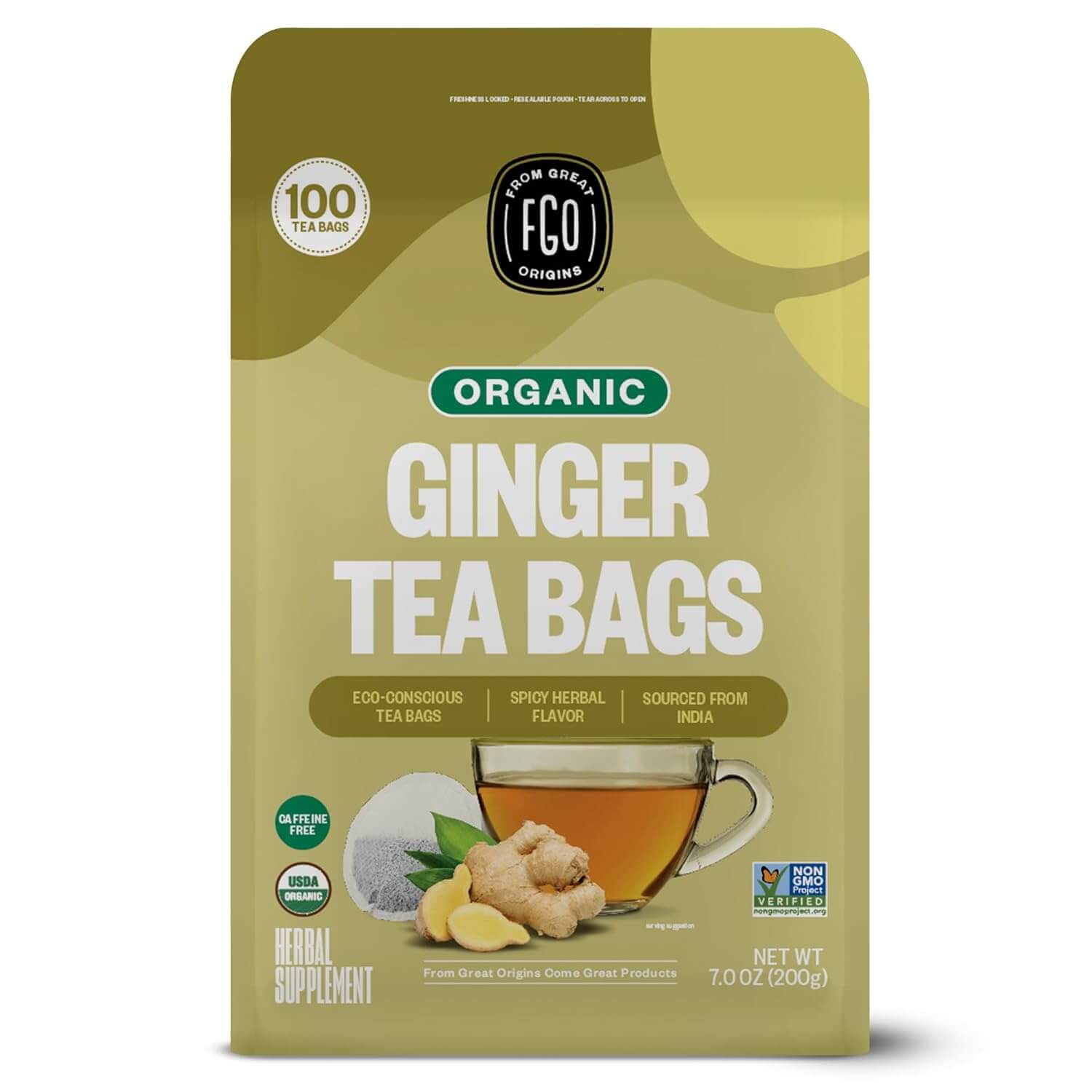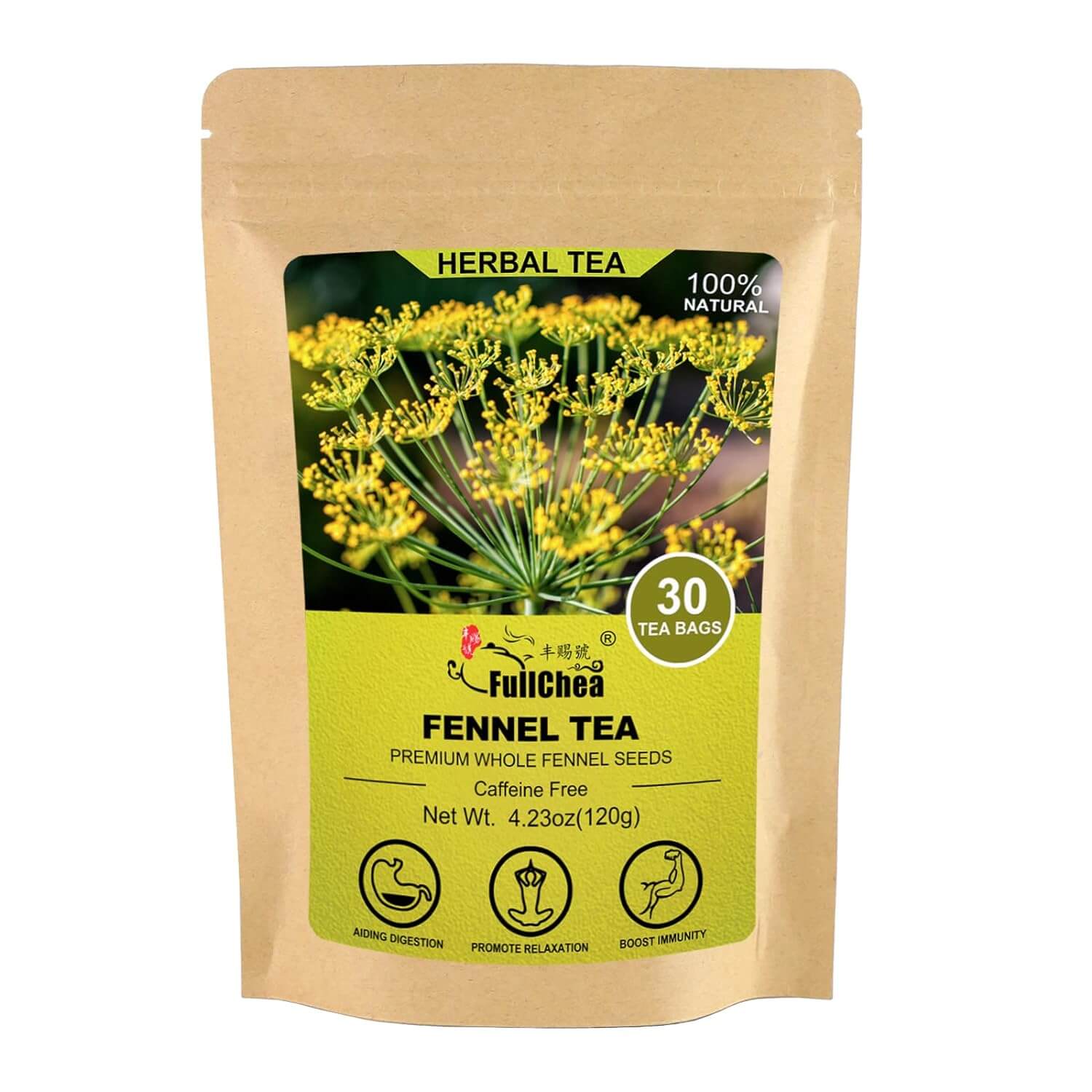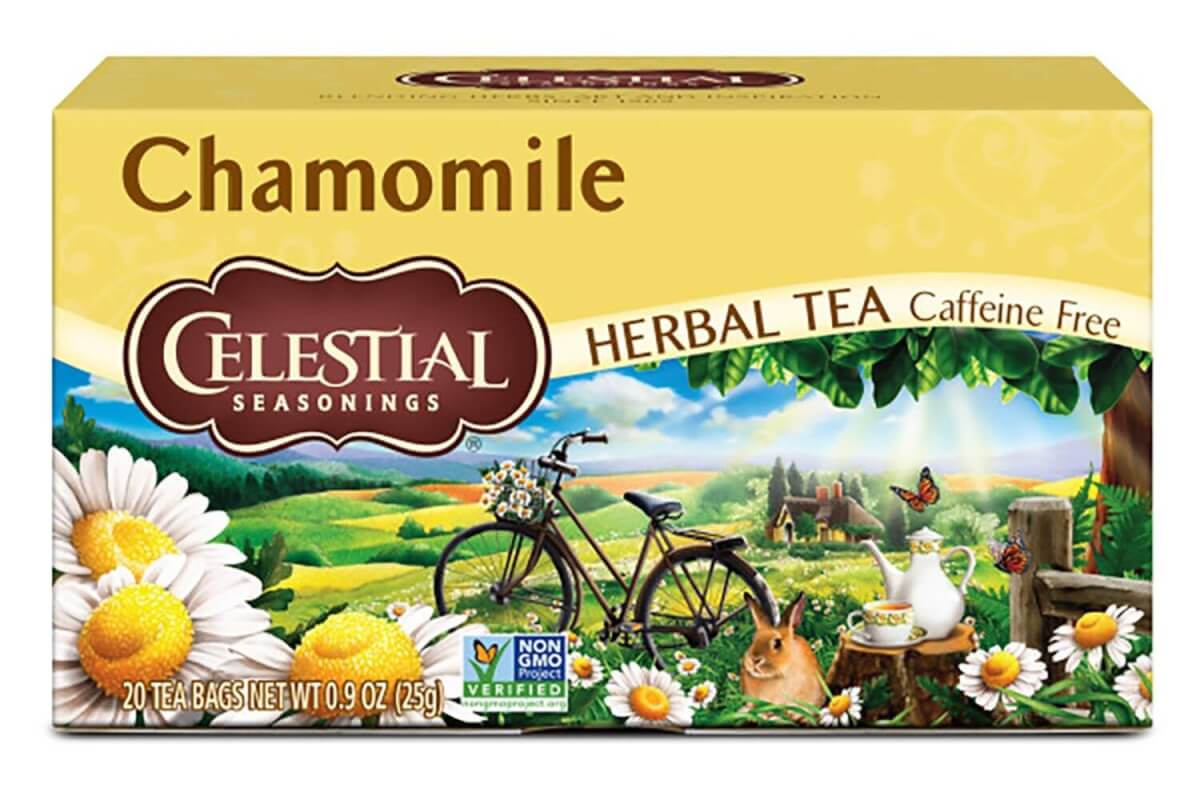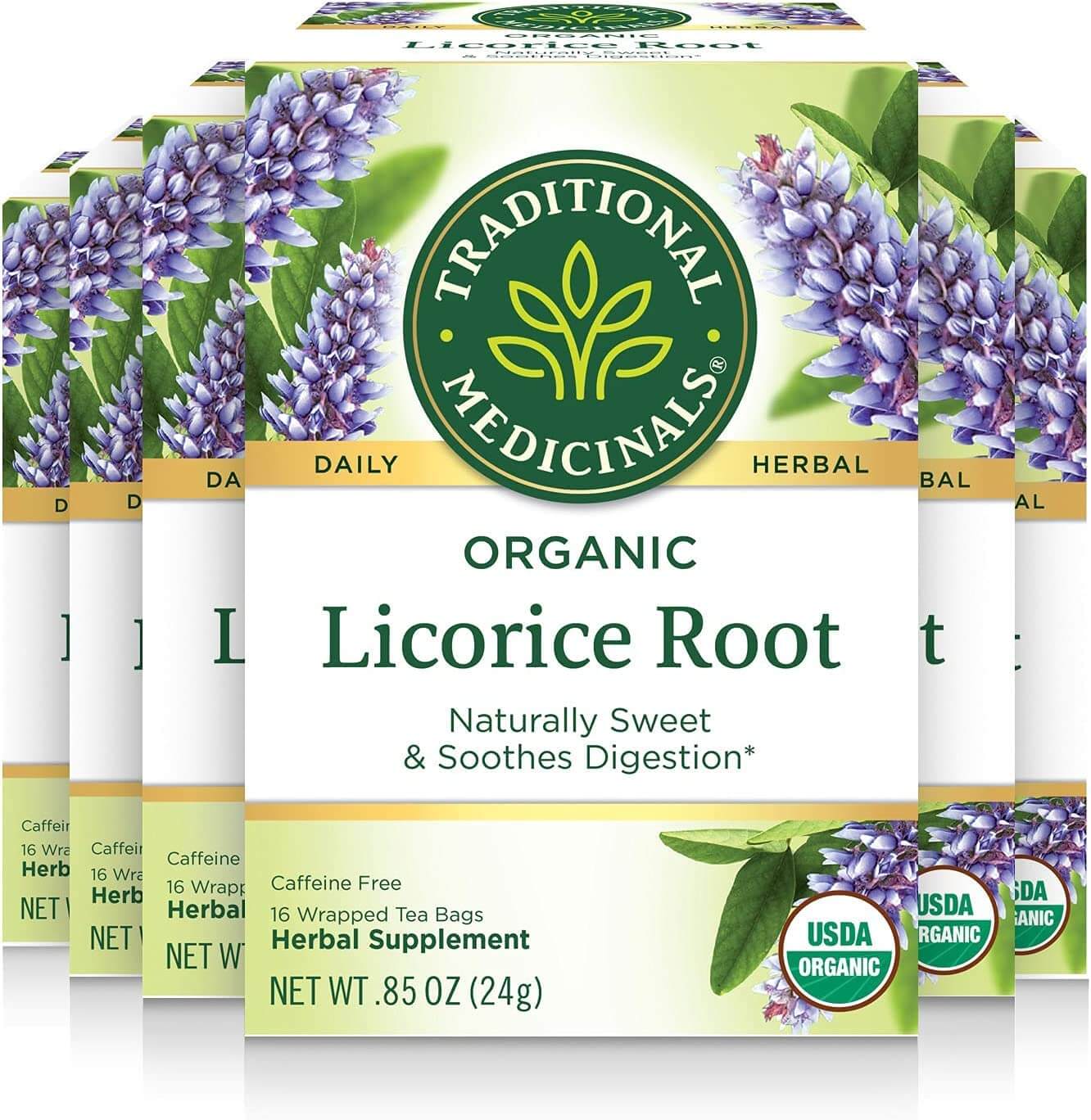Your gut health has more of an impact on your overall health than you might think. Your digestive system is responsible for breaking down the foods you eat and absorbing nutrients, assisted by a very diverse microbiome of bacteria. Without a healthy gut, no matter what foods you put into your body, you won’t be able to absorb all the nutrients from it. Our immune health is also linked to our gut health. So, for overall wellness, try out some of the best teas for gut health.
Gut issues can be hard to detect or pinpoint for many people, largely due to the lack of public knowledge or education about the importance of gut health. A recent OnePoll survey reveals that 16 percent of people don’t prioritize gut health, and 40 percent would only be concerned about it if their doctor told them to be. Many believe that their gut issues were embarrassing or not severe enough to make a change. It’s important to know all the symptoms of an unhealthy gut in order to make the correct lifestyle changes.
Exercise is always touted as being beneficial to maintain weight and cardiovascular health, but did you know it can also improve your gut health? Exercising for just 30 minutes each day can help keep your digestive tract happy and have a positive impact on the gut microbiome. Researchers from the University of Calgary compared the guts of those who exercised 150 or more minutes a week, to those who didn’t and found both the richness and diversity of the gut microbiome improved with the amount of time spent exercising. Adding more exercise to your week along with a simple cup of tea can help improve the population of vital bacteria in your gut.
If you’re experiencing symptoms such as bloating, gas, heartburn, food intolerance, fatigue, or even illness and immune disorders, it might be time to start taking care of your gut! There are a number of different things that can help restore your microbiome such as taking probiotics, getting enough sleep, or exercising more. It can also be as simple as a cup of tea. The best teas for gut health are full of nutrients and antioxidants that can help you restore the good bacteria in your digestive system. We formed our list based on which types of tea are most recommended across 10 expert reviews. Remember that these teas are not a cure-all for your gut issues, but simply a natural remedy that may aid in improving them. Talk to your doctor if you have any severe issues. If we missed any, let us know your suggestions in the comments!

➡️ How Our “Best Of The Best” Lists Are Created
StudyFinds’ “Best of the Best” articles are put together with the idea of taking the work out of common consumer research. Ever find yourself searching for a product or service on Google and reading multiple reviews to find items listed across many of them? Our Best of the Best lists are created with that process in mind, with each item ranked by how frequently it appears on expert reviews or lists. With Best of the Best, you are getting consensus picks — making them truly the best of the best!
7 Best Teas for Gut Health, According to Experts
1. Peppermint Tea
Peppermint tea is great served hot or cold, and is known for being a great reliever for stomach pain or indigestion. Real Simple explains that because peppermint is a carminative, a substance that helps with gas in the digestive tract, this tea can be effective in relieving symptoms of IBS or any other uncomfortable bloating or pain within the GI tract.
Some studies have shown that peppermint helps to eliminate pain in the digestive system by relaxing the smooth muscle in the intestines to relieve muscle spasms. Peppermint derives from the Mentha piperita plant. Menthol has been shown to improve digestive issues, according to Healthline. Plus, the flavor is refreshing and simply delicious!
Peppermint may also improve the flow of bile, helping food to digest and pass through the intestine quickly. Pique Life writes: “Studies in humans show that peppermint oil, which is found in peppermint tea leaves, has analgesic effects. This can combat pain in the gastrointestinal tract. It may also help support good bowel health.”
2. Ginger Tea
Ginger is an age-old remedy for digestion that can often be found in Eastern medicine to soothe an upset stomach. Making potent ginger tea is as simple as boiling some of the root with water. In tea form, iHerb says ginger has the power to help digestion, nausea, and the production of digestive juices. The active ingredient, gingerol, settles the stomach.
Ginger is best for soothing nausea, but can also reduce inflammation and increase gastrointestinal motility, or the rate at which food moves through the digestive system. According to Sencha Tea Bar, “Dozens of studies have shown that ginger helps to inhibit feelings of nausea within one to six hours. The studies have been conducted on pregnant women with morning sickness, chemo patients, and in conditions where people get seasick and motion sickness.”
Ginger can also reduce intestinal cramping and help prevent gas. Well + Good says that research shows ginger’s ability to prevent indigestion by making the digestive process go a bit quicker.
3. Fennel Tea
Fennel tea can be made from the seeds of the fennel plant which you can find dried and whole or in powdered form. Like peppermint, this is another carminative that helps to reduce bloating. Real Simple calls it “a cure-all for gut complaints.”
The seeds themselves have a large amount of fiber if consumed, which is great for digestion, but as a tea they have anti-bacterial and anti-inflammatory properties which can get rid of any digestion upset, adds NutraTea.
In many southeast Asian countries fennel seeds are consumed after a meal to aid digestion. “Fennel also helps your body in its bile production which breaks down food faster and keeps your system in tip-top shape,” writes My Tea Drop. “For those wrestling with flatulence issues, a warming cup of fennel tea can calm your system right down.”
4. Chamomile Tea
Chamomile is known as the most soothing tea to help with sleep and relaxation, but it is great for your digestive system as well. According to Thorne, it has been used historically to balance GI tract inflammation. It is now known as a gastroprotectant, helping to relax the smooth muscle tissue of the digestive tract, they write.
Being a relaxant for your mind, chamomile also acts as relaxant for your intestines, helping to release any cramping or gas. This is the perfect cocktail for bedtime due to its aid in sleep quality and digestive properties. You’re killing two birds and won’t be woken up by a belly ache in the middle of the night. TeaLeavz also mentions that a cup of chamomile before or after a meal helps your body better absorb nutrients.
Chamomile is also known to help ward off symptoms of acid reflux and bloating. Real Simple says you can luckily find chamomile anywhere. “A 2022 review showed chamomile to be therapeutic in gastrointestinal (GI) disorders as a potent anti-inflammatory agent, illustrating its effectiveness in treating tummy complaints like bloating,” they add.
5. Licorice Root Tea
One doesn’t usually think of licorice as a tea, since the flavor is usually found in candy. However, the root has been used in Mediterranean and Eastern medicine for centuries to treat many different ailments. Sencha Tea Bar says that licorice root increases the production of your body’s mucin, which is what lines your stomach to protect it from stomach acid. That, paired with the flavonoids in this tea, can help prevent and treat ulcers.
The active compound in licorice is glycyrrhizin, which has been studied for its ability to reduce body fat, and fight ulcers and infections. Plus, it’s tasty! According to NutraTea, licorice root has been used as an herbal remedy for many centuries. It has the ability to protect your liver and rid the body of toxins.
Researchers have even found that licorice is one of many foods that can be used to stimulate growth of beneficial bacteria or induce phages to kill harmful viruses or organisms.
6. Green Tea
Green tea is the famous powerhouse of the natural world, full of antioxidants that protect and neutralize harmful toxins found in the environment. “Green tea has been used for medicinal purposes in China and Japan for thousands of years,” says Everyday Health. The tea contains antioxidants, which neutralize free radicals in the body, and it contains anti-inflammatory components, known as polyphenols, that research suggest may help treat inflammatory bowel diseases like Ulcerative Colitis.
Green tea can help to encourage the growth of healthy bacteria in the gut, as well as fortify the intestinal wall, protecting against conditions like leaky gut. TeaLeavz calls it the “Queen Bee” of healthy tea. Green tea is rich in polyphenols, catechins, and antioxidants, so soothing the stomach is light work.
The catechin antioxidant in green tea also helps to encourage the growth of Flavonifractor plautii, a strain of bacteria in the gut that can help relieve inflammation. “These catechins offer anti-inflammatory properties that help decrease inflammation in the stomach, reducing stomach cramps. Catechins such as EGCG may also help to treat cases of colitis—a disorder caused by inflammation that affects normal digestion,” adds Sencha Tea Bar.
7. Dandelion Tea
Dandelions are considered a weed, and you can find them in both seed and flower form right in your backyard or a patch of grass. Hailing from the Taraxacum weed family, you can find dandelions right in your backyard, and I’m sure many of you have. Healthline reports, “Animal studies have shown that dandelion extracts contain compounds that may promote digestion by stimulating muscle contractions and promoting the flow of food from the stomach to the small intestine.”
Some research suggests that dandelion can help soothe certain gastrointestinal disorders such as gastritis and enteritis. Pique Life says that consuming dandelion greens provides a ton of vegetable fiber, which is great for your gut microflora. You can also sprinkle greens on top of a salad if tea is not your jam!
Dandelions also contain the carbohydrate inulin, which is a type of soluble fiber found in plants that support the growth and maintenance of healthy gut bacteria. “As another effective digestive bitter, dandelion root tea is a great option for bloating relief,” writes Real Simple. “One 2022 study found this herb to be effective at alleviating inflammation along the entire GI tract. In fact, researchers noted its efficacy in addressing acid reflux, indigestion, gastritis, ulcers, and colitis (or inflammation of the colon)—common culprits behind a bloated belly.”
You might also be interested in:
Sources:
- Real Simple
- Healthline
- Pique Life
- iHerb
- Sencha Tea Bar
- Well + Good
- Real Simple
- My Tea Drop
- TeaLeavz
- Everyday Health
Note: This article was not paid for nor sponsored. StudyFinds is not connected to nor partnered with any of the brands mentioned and receives no compensation for its recommendations. This article may contain affiliate links in which we receive a commission if you make a purchase.

